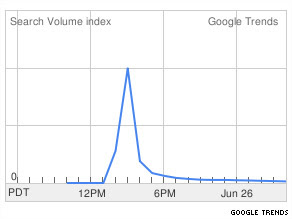A Green Way to Get Rid of Old Electronics

June 29, 2009 (New York Times) This month, Edward Reilly, 35, finally let go of the television he had owned since his college days. Although the Mitsubishi set was technologically outdated, it had sat for years in Mr. Reilly’s home in Portland, Me., because he did not know what else to do with it, given the environmental hazards involved in discarding it. “It’s pretty well known that if it gets into the landfill, it gets into the groundwater,” he said. “Its chemicals pollute.” But the day after the nationwide conversion to digital television signals took effect on June 12, Mr. Reilly decided to take advantage of a new wave of laws in Maine and elsewhere that require television and computer manufacturers to recycle their products free of charge. He dropped off his television at an electronic waste collection site near his home and, he said, immediately gained “peace of mind.” Over the course of that day, 700 other Portland residents did the same. Since 2004, 18 states and New York City ...





